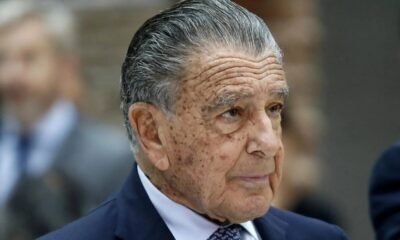INTERNACIONAL
Iran, US begin negotiations over Tehran’s advancing nuclear program
Iran and the U.S. began negotiations in Oman on Saturday over Tehran’s advancing nuclear program, and the talks will likely depend on the Islamic Republic’s enrichment of uranium.
According to Iranian state media, the talks began on Saturday in Oman’s capital of Muscat. But Iranian Foreign Minister Abbas Araghchi and U.S. Mideast envoy Steve Witkoff offered no immediate details on the talks.
Araghchi arrived on Friday in Oman and met with Omani Foreign Minister Badr al-Busaidi, who had mediated the two earlier rounds of talks in Muscat and Rome. Araghchi was seen heading to the talks late Saturday morning.
TRUMP SAYS HE’LL BE ‘LEADING THE PACK’ TO WAR WITH IRAN IF DEAL PROSPECTS WHITHER AWAY
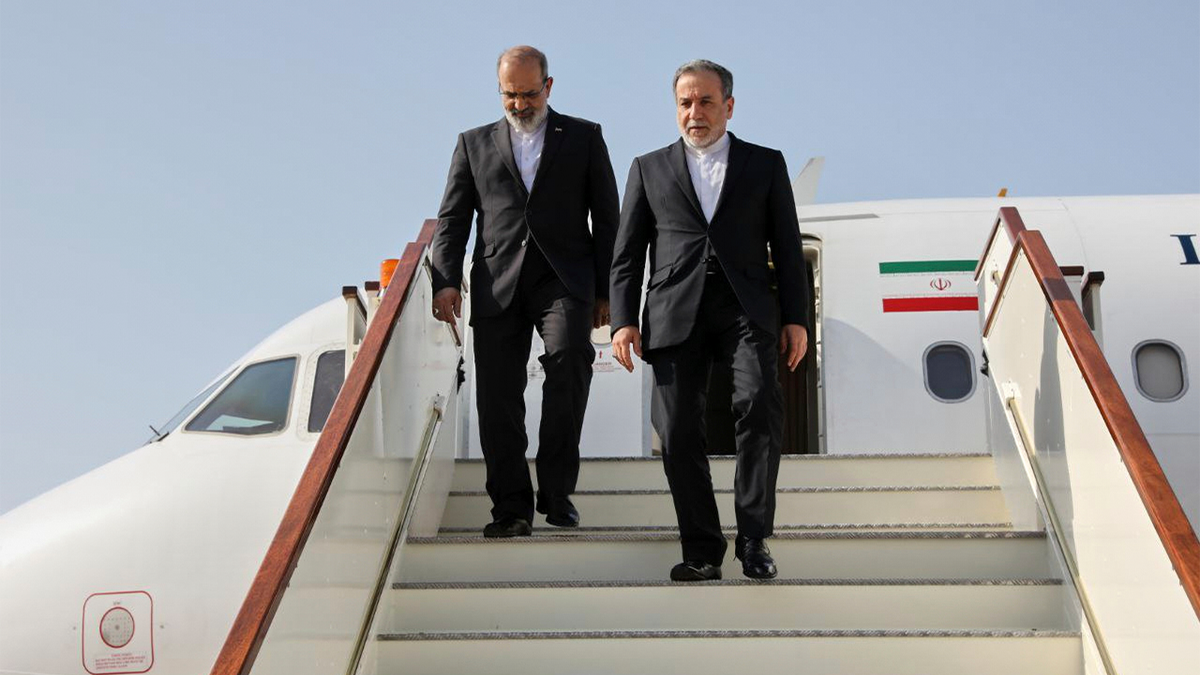
Iranian Foreign Minister Abbas Araghchi, right, steps out of his plane as he arrives in Muscat, Oman, Friday, April 25, 2025, a day prior to negotiations with U.S. Mideast envoy Steve Witkoff. (AP)
Witkoff arrived on Saturday for the talks that were expected to begin in the coming hours.
The negotiations seek to limit Iran’s nuclear program in exchange for the U.S. lifting some economic sanctions it has imposed on the Islamic Republic.
U.S. President Donald Trump has repeatedly threatened to launch airstrikes targeting Iran’s program if a deal is not reached. Iranian officials warn that they could pursue a nuclear weapon with their stockpile of uranium enriched to near weapons-grade levels.

Iranian Foreign Minister Abbas Araghchi, left, speaks with an unidentified Omani official upon his arrival in Muscat, Oman, Friday, April 25, 2025, a day prior to negotiations with U.S. Mideast envoy Steve Witkoff. (AP)
Iran’s nuclear deal in 2015 with foreign nations limited Tehran’s program before Trump unilaterally withdrew from the agreement in 2018, leading to years of conflict and tensions.
Trump reiterated that he hoped negotiations would lead to a new nuclear deal, although he still suggested the possibility of a military strike if a deal was not reached.
«The Iran situation is coming out very well,» Trump said on Air Force One as he traveled to Rome for Pope Francis’ funeral. «We’ve had a lot of talks with them and I think we’re going to have a deal. I’d much rather have a deal than the other alternative. That would be good for humanity.»
FETTERMAN CALLS FOR BOMBING IRANIAN NUCLEAR FACILITIES: ‘WASTE THAT S—‘
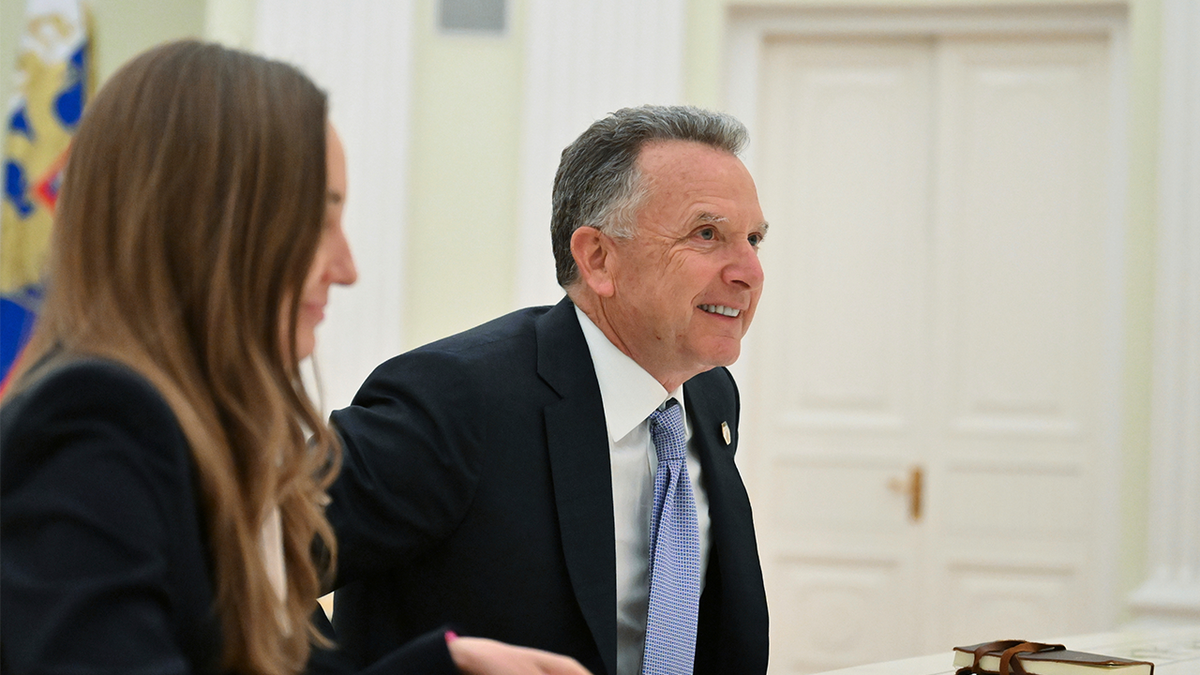
U.S. President Donald Trump’s special envoy Steve Witkoff arrived on Saturday in Oman for negotiations with Iran. (AP)
CLICK HERE TO GET THE FOX NEWS APP
«There are some people that want to make a different kind of a deal — a much nastier deal — and I don’t want that to happen to Iran if we can avoid it,» he added.
The Associated Press contributed to this report.
INTERNACIONAL
Jesse Ball resignifica a Charly García con aquello de “la mustia sensación de que el tiempo se echó a perder”
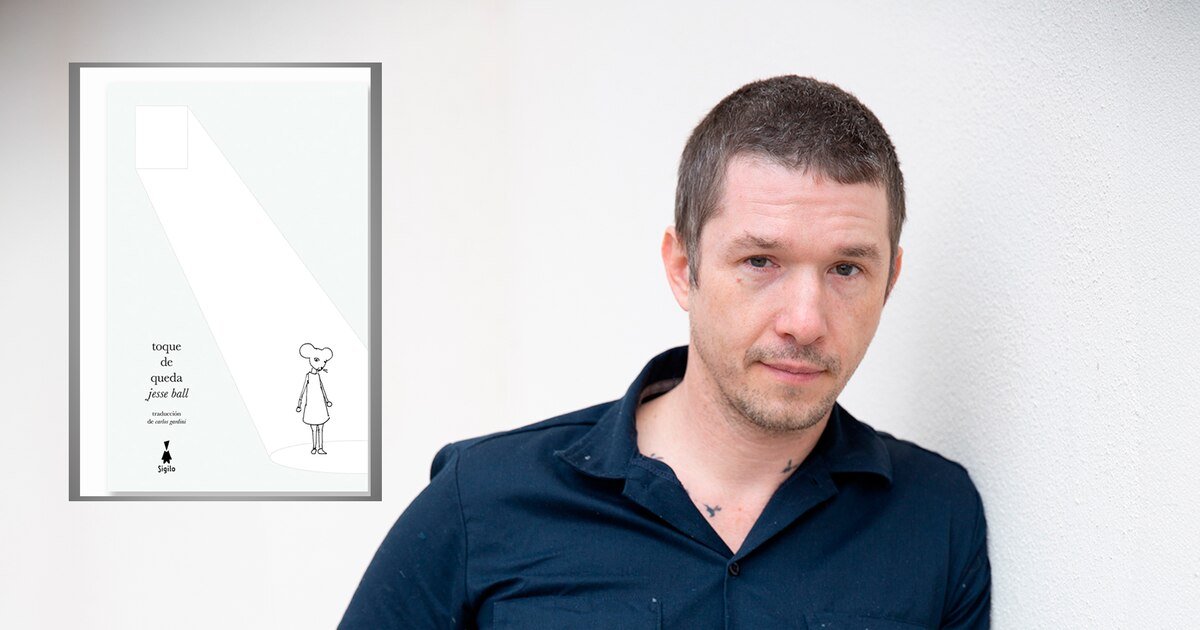
Con excelente traducción de Carlos Gandini, la editorial Sigilo acaba de publicar una nueva edición de Toque de queda de Jesse Ball y es una buena oportunidad para adentrarse en la obra de un autor original, diferente.
Toque de queda se desarrolla en una ciudad sin nombre gobernada por un régimen represivo donde la música y el arte están prohibidos, y el silencio se impone mediante el miedo. William Drysdale, que en su día fue un violinista de renombre, ahora trabaja escribiendo epitafios para aquellos que han desaparecido o esperan su ejecución. Su hija Molly, de ocho años, muda pero con una imaginación desbordante, se convierte en el corazón emocional de la novela. Cuando William rompe el estricto toque de queda de la ciudad para asistir a una reunión secreta de la resistencia, Molly se queda atrás y monta una oscura obra de títeres con un vecino: un relato alegórico de la historia de su familia y la opresión de la ciudad.
Desde las primeras páginas, nos adentramos en un mundo fracturado construido a partir de fragmentos de memoria y silencio. Su narrativa toda se resiste a la linealidad y a las convenciones; distorsiona el tiempo, mezcla escenas y nos aleja de la comodidad de la simple ecuación “causa y efecto”. Lo que Ball consigue con esta forma fragmentada no es simplemente un juego estético, sino un espejo del caos interno de sus personajes. La vida en ese lugar imaginado no se desarrolla de forma ordenada, sino que avanza caótica, ensombrecida por el dolor y la incertidumbre. Los momentos llegan fuera de secuencia, no para confundirnos, sino para situarnos en el ritmo del trauma. Aquí, el tiempo es elástico. Los recuerdos se funden con el presente. El dolor se repite sin cesar. Cada fragmento forma parte de un mosaico más amplio, incompleto pero resonante, y el lector se convierte en un participante activo, que va armando con las piezas un rompecabezas a partir de los silencios y las sugerencias. Ball le pide mucho a sus lectores. Y eso se agradece.

Así como en la mente, la novela se acomoda al funcionamiento real del pensamiento y la memoria. No hay pausas entre capítulos y perdemos un poco el norte narrativo. En su lugar, Ball nos ofrece una forma de sentir el tiempo como lo hacen sus personajes: fluido, inestable e inquietante. Capta profundamente la naturaleza subjetiva de la memoria: cómo, en momentos de profundo dolor o reflexión, nuestra mente no reproduce los acontecimientos en orden cronológico, sino que da vueltas, salta y se detiene en fragmentos, como en un sueño recurrente.
La urgencia emocional de la novela es por momentos surrealista. Incluso las escenas más banales vibran con tensión, con la certeza de que algo invisible siempre está presionando. Hay un temor silencioso que impregna Toque de queda, una sensación de que lo ordinario puede desmoronarse en cualquier momento y lo cotidiano se vuelve extravagante, demoledor, o simplemente extraño.
En su obra, Ball escribe sobre la soledad y muchas veces responde a la frase de la canción de Charly García “la mustia sensación de que el tiempo se echó a perder”: la conversación que no se tuvo, la mano que no se tomó, el momento que se perdió. No es melodramático. Es simplemente cierto. Esa verdad duele.

Los dos personajes principales de la novela están habitados por la soledad. La soledad de William, el padre de Molly, tiene varias capas: es el dolor de un viudo, el silencio de un hombre que antes estaba lleno de vida y la impotencia de un padre que intenta proteger a su hija de un mundo brutal. Aunque está profundamente dedicado a Molly, está emocionalmente aislado, resignado, y cauteloso. Su silenciosa rebelión al romper el toque de queda es tanto un acto de desesperación como de esperanza, un gesto solitario contra un sistema abrumador. La soledad de William no es ruidosa, es una quietud, un peso, una presencia constante en su vida interior. Y Molly, la hija de ocho años de William, es muda, pero su silencio es rico en expresiones. Muy inteligente y creativa, procesa el mundo a través del juego, los símbolos y la imaginación. Su soledad es diferente a la de su padre: está llena de nostalgia e inventiva. Extraña a su madre, siente el dolor de su padre y, sin embargo, encuentra formas de conectar a través de historias y títeres. Su soledad está llena de color y vida, pero sigue siendo una soledad nacida de la pérdida y el silencio.
Sin embargo, a pesar de su melancolía, Ball salpica su narrativa con momentos de bondad, encuentros que parecen pequeñas misericordias. Una mirada compartida. La palabra de un desconocido. Estas escenas nunca son exageradas, pero tienen el peso emocional de los discursos de una novela. En el mundo de Ball, una sola mirada puede redimir una vida. Y ese minimalismo es clave. No llena la página de adornos. En cambio, nos da espacio para sentir. Las frases son cortas, sí, pero se abren a un vasto territorio emocional. Donde otros escritores explican, Ball sugiere. Y no es solo una elección estilística, es una invitación. Obliga al lector a inclinarse y hurgar, a habitar los silencios, a reconstruir las emociones no expresadas.
Toque de queda es una exploración tranquila pero resonante de la vida bajo la tiranía, donde se impone el silencio y la soledad, y la imaginación se convierte tanto en refugio como en resistencia. A través de las vidas silenciosas de William y Molly, Ball examina cómo los individuos afrontan la pérdida, no solo de sus seres queridos, sino también de la libertad, la expresión y la verdad. Su relación se convierte en un santuario en un mundo despojado de sentido, y sus pequeños actos de creatividad se erigen como un silencioso desafío contra la maquinaria del control. Con su lenguaje sobrio y su atmósfera inquietante, Toque de queda nos recuerda que, incluso en los momentos más oscuros, el espíritu humano busca conexión y que las historias, por frágiles que sean, constituyen el puente entre la memoria y el presente, entre la soledad y la compañía, entre la libertad interior y la opresión exterior.
INTERNACIONAL
Trump signs rescissions package, closes out week with trip to Scotland
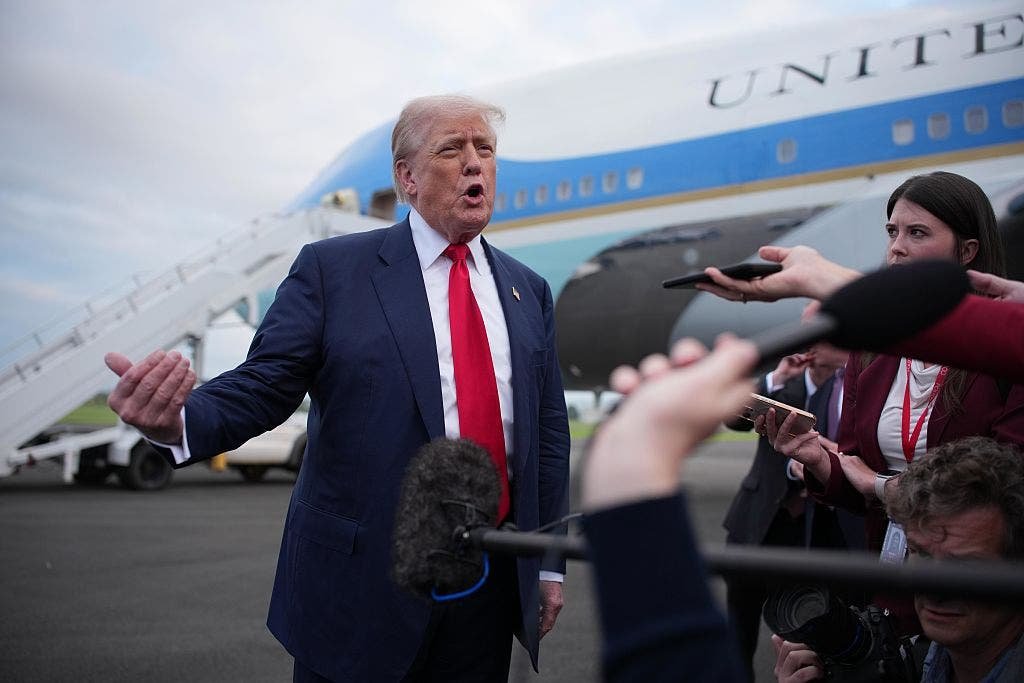
Trump sends message to Obama: He ‘owes me BIG’
President Donald Trump discusses a Supreme Court ruling on presidential immunity amid his accusations against former President Barack Obama for pushing a faulty Trump-Russia collusion narrative.
NEWYou can now listen to Fox News articles!
President Donald Trump arrived in Scotland late Friday for a working trip where he is expected to meet with British Prime Minister Keir Starmer amid ongoing trade negotiations between the U.S. and the U.K., as well as visit several of his properties there.
«We’re meeting with the prime minister tonight,» Trump told reporters Friday before departing for Scotland. «We’re going to be talking about the trade deal that we made, and maybe even improve it.»
«We want to talk about certain aspects, which is going to be good for both countries,» Trump said. «More fine-tuning. Also, we’re going to do a little celebrating together, because, you know, we got along very well. U.K.’s been trying to make a deal with us for like, 12 years, and haven’t been able to do it. We got it done, and he’s doing a very good job, this prime minister. Good guy.»
TRUMP HEADS TO SCOTLAND TO TALK GOLF, POLITICS AND TRADE
President Donald Trump waves as he arrives at Glasgow Prestwick Airport on July 25, 2025, in Prestwick, Scotland.
In May, the U.S. and the U.K. announced the two countries had agreed to a major trade deal, which marked the first historic trade negotiation signed following Liberation Day, when Trump announced widespread tariffs for multiple countries April 2 at a range of rates.
Trump, who is slated to remain in Scotland until Tuesday, is also scheduled to visit his golf courses in Turnberry and Aberdeen while abroad.
Here’s also what happened this week:
Federal Reserve visit
Trump visited the Federal Reserve headquarters Thursday, as he has ramped up digs at Federal Reserve Chairman Jerome Powell.
Trump accompanied other administration officials for a tour of the headquarters, following $2.5 billion in renovations to the building. The massive project has attracted scrutiny from lawmakers and members of the Trump administration, including the president, who suggested the huge renovation could amount to a fireable offense.
«I think he’s terrible … I didn’t see him as a guy that needed a palace to live in,» Trump said July 16. «But the one thing I would have never guessed is that he would be spending two and a half billion dollars to build a little extension onto the Fed.»
FOUR KEY TAKEAWAYS FROM TRUMP’S VISIT TO THE FEDERAL RESERVE WITH POWELL
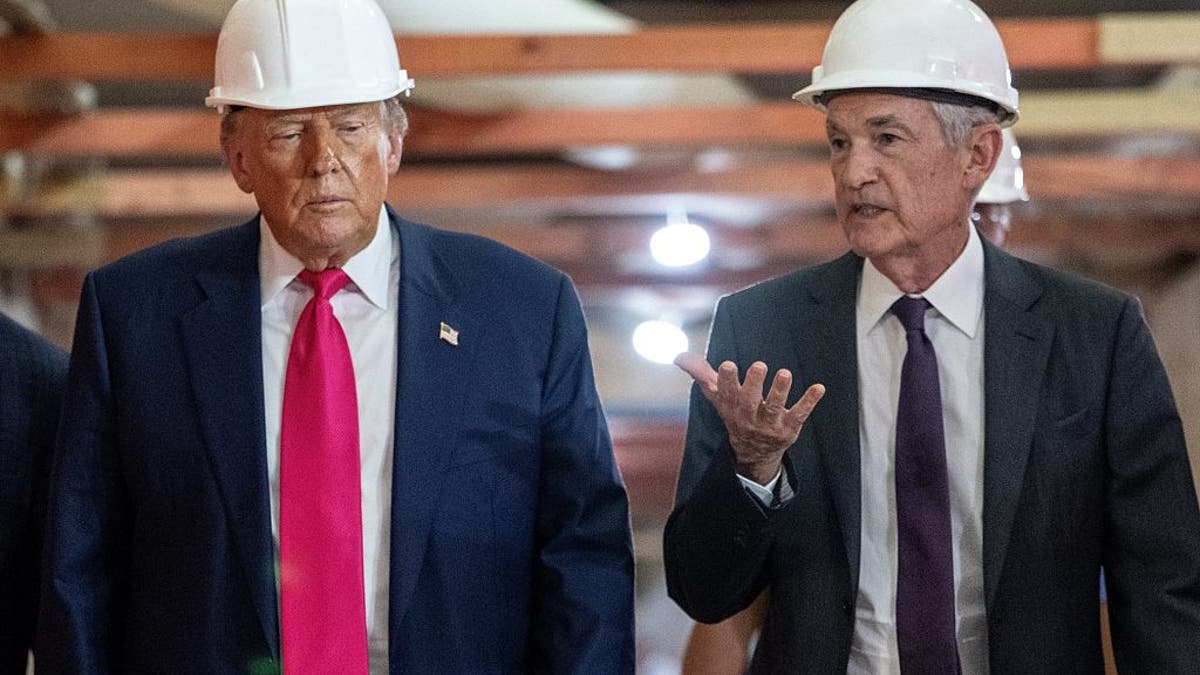
President Donald Trump speaks with Federal Reserve chair Jerome Powell (right) as he visits the Federal Reserve in Washington, July 24, 2025.
On Thursday, the two briefly sparred over the cost of the renovation, but Trump told reporters afterward that the two had a «good meeting» and that there was «no tension.» Trump also shut down speculation he might oust Powell, claiming such a move would be unnecessary.
The Federal Reserve, the United States central bank, oversees the nation’s monetary policy and regulates financial institutions.
Trump historically has railed against Powell, calling him names like «numskull» and «too late.» Likewise, Trump has expressed ire toward Powell for ignoring requests to lower interest rates.
«Well, I’d love him to lower interest rates, but other than that, what can I tell you?» Trump said Thursday.
Rescissions package signing
Trump signed into law Thursday his roughly $9 billion rescissions package to claw back already approved federal funds for foreign aid and public broadcasting.
The rescissions measure revoked nearly $8 billion in funding Congress already approved for the U.S. Agency for International Development (USAID), a formerly independent agency that provided impoverished countries aid and offered development assistance.
The rescissions package also rescinds more than $1 billion from the Corporation for Public Broadcasting (CPB), which provides federal funding for NPR and PBS.
TRUMP SIGNS $9B RESCISSIONS PACKAGE INTO LAW, REVOKING FUNDING FOR FOREIGN AID, NPR
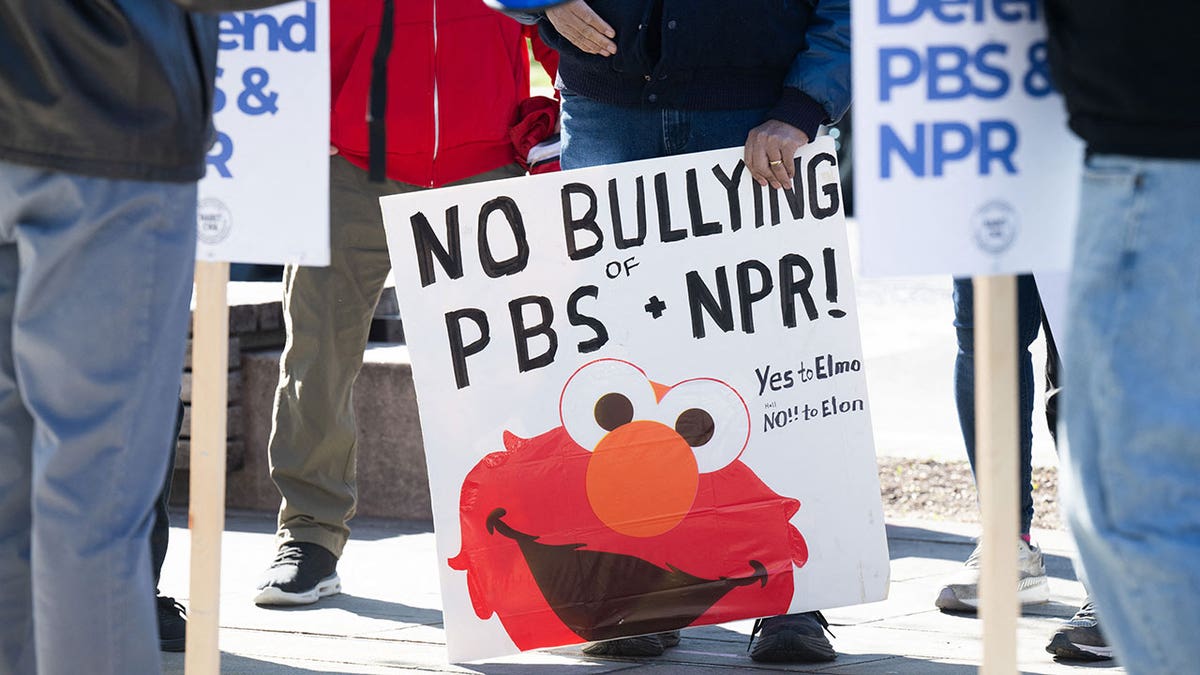
Liberals reacted strongly to Congress’ recent vote to strip federal funding from NPR and PBS. (Saul Loeb/AFP via Getty Images)
INTERNACIONAL
Israel reanuda el lanzamiento de ayuda sobre Gaza en medio de una grave crisis humanitaria

En medio de una creciente presión internacional para permitir el ingreso de asistencia humanitaria a la Franja de Gaza, Israel reanudó este sábado el lanzamiento aéreo de alimentos y suministros básicos. El Ejército informó que arrojó siete paquetes con harina, azúcar y comida enlatada, como parte del esfuerzo por «facilitar la entrada de ayuda» al territorio palestino.
La iniciativa también incluirá la participación del Reino Unido y Emiratos Árabes Unidos, que anunciaron su disposición para sumarse de inmediato a los envíos.
Sin embargo, la ONU y organizaciones humanitarias insisten en que esta modalidad no resuelve el problema de fondo. «El lanzamiento aéreo no pondrá fin al hambre. Es costoso, ineficaz y puede incluso matar a civiles hambrientos», escribió en la red X Philippe Lazzarini, director de la agencia de la ONU para los refugiados palestinos (UNRWA).
Este sábado, la Defensa Civil de Gaza denunció la muerte de al menos 40 personas por bombardeos israelíes en distintos puntos del enclave, incluyendo Ciudad de Gaza, Jan Yunis y un campamento en el centro del territorio. Además, tres personas murieron por disparos del Ejército cuando esperaban recibir ayuda, una de ellas alcanzada al acercarse a un punto de distribución ubicado cerca de un puesto militar israelí.
Testigos aseguraron que miles de personas se habían congregado en ese lugar con la esperanza de conseguir alimentos. «El Ejército abrió fuego cuando la gente intentó acercarse», dijo Abou Samir Hamoudeh, de 42 años, a la agencia AFP.
En paralelo, un barco con activistas propalestinos fue interceptado por fuerzas israelíes cuando se aproximaba a la costa de Gaza. Se trata del «Handala», una embarcación fletada por el movimiento internacional Flotilla por la Libertad, que había partido desde Sicilia con cargamento de medicamentos, alimentos y material médico. Israel confirmó que su marina impidió el ingreso del barco y que todos los pasajeros están a salvo.
Desde el inicio de la guerra, el 7 de octubre de 2023, Israel mantiene un bloqueo casi total sobre Gaza. A principios de marzo, ese cerco se endureció aún más, agravando la crisis por la falta de alimentos, medicamentos y otros bienes esenciales. Recién a fines de mayo se autorizaron algunas flexibilizaciones.
Este viernes, Francia, Alemania y Reino Unido reclamaron a Israel que levante de inmediato las restricciones a la entrada de ayuda humanitaria. En tanto, el Ejército israelí dijo que establecerá corredores humanitarios para permitir el paso seguro de los convoyes de alimentos y medicinas organizados por la ONU.
La guerra fue desencadenada por el brutal ataque de Hamas contra territorio israelí, que dejó 1.219 muertos, en su mayoría civiles, según cifras oficiales. En represalia, Israel lanzó una ofensiva militar sobre Gaza que ya provocó al menos 59.733 muertes, también en su mayoría civiles, según el Ministerio de Salud de ese territorio, cuyas cifras son consideradas creíbles por la ONU.
Los médicos de Gaza atienden cada día chicos y adultos desnutridos. Los hospitales suman cada día muertos por esa causa o por enfermedades evitables y simples pero que no pueden ser tratadas por falta de medicamentos. El mundo alza la voz ante la creciente crisis humanitaria en el enclave palestino, luego de más de 20 meses de guerra. Pero la ayuda que los habitantes necesitan desesperadamente no llega a tiempo y los esfuerzos para hacerla entrar se enfrentan a numerosos obstáculos.
Las agencias de la ONU y las organizaciones humanitarias denuncian las restricciones impuestas por Israel, el problema acuciante de la seguridad en un territorio constantemente bombardeado, y la aplicación de un mecanismo auspiciado por Estados Unidos y el Estado hebreo que hace caso omiso del sistema humanitario tradicional.
Israel acusa a las organizaciones internacionales de haber fracasado, y asegura que el anterior sistema coordinado por la ONU permitía al movimiento ultraislámico Hamas saquear los camiones de ayuda.
Sobre el terreno, más de 100 organizaciones humanitarias alertaron esta semana del riesgo de hambre masiva en el enclave palestino. Tanto la ONU como las ONGs se niegan a cooperar con la Fundación Humanitaria de Gaza (GHF) ya que consideran que fue concebida para servir principalmente los objetivos militares israelíes.
Israel,Franja de Gaza,Últimas Noticias

 POLITICA2 días ago
POLITICA2 días agoLa justicia de Santa Cruz desafío a la Corte Suprema e incluyó a Cristina Kirchner en el padrón electoral

 POLITICA2 días ago
POLITICA2 días agoCristina Kirchner pidió salir a militar para que los que “están hambreando a la gente tengan su merecido en las urnas”

 POLITICA2 días ago
POLITICA2 días agoEl candidato libertario por el que Kicillof despidió a 24 policías denunció “una cacería de brujas” en la Provincia













